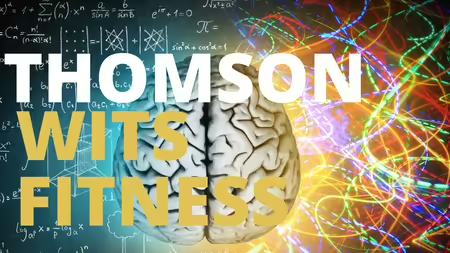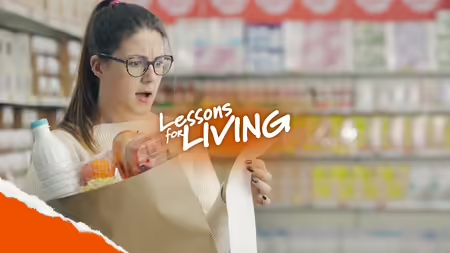Child Care University supports child care practitioners in providing quality child care and advancing professional skills. Join us for a virtual conference to learn and share ideas to enrich the quality of care you provide to the children and families in your programs.
Tuesday, March 2 | 6:00-7:30 p.m.
Thursday, March 4 | 6:00-7:30 p.m.
Saturday, March 6 | 9:00 a.m.- 12:30 p.m.
March 2 | 6-7:30 PM (1.5 hour session) choose one
1. Child Sexual Abuse Awareness
Edie Peterson, Terri Wilkens, Liz Spaulding YWCA of the Sauk Valley
This session will feature child abuse prevention strategies for preschool children. Discussion will include how to handle child disclosures of sexual abuse, policies for preschools, and how to defuse troubling behaviors.
2. Bringing Science into Your Preschool Classroom: Part 1- Breaking Barriers
Dr. Melissa Clucas Walter and Kendra Nenia, Northern Illinois University Child Development Center
Preschool teachers often spend less time on science than other areas and children show less growth compared to other academic areas. This is concerning because science achievement gaps at 8th grade have roots in early childhood! So why aren't young children being provided with science learning opportunities? Many teachers feel pressure to focus on language and literacy skills and have difficulty finding time to provide science experiences. In this first of two interactive sessions, we will discuss this major barrier, as well as other barriers and challenges to teaching science in preschool. Participants will have the opportunity to explore their beliefs and attitudes related to early childhood science and to learn about one approach that can be used to integrate science throughout the day.
3. The New Normal
Jodi York, Open Bible Learning Center
Unexpected hazards, pandemics, and illnesses can appear at any time, and it is vital for our programs to ensure our facility and premises are safe for the families we serve. Over the past few months our programs have seen many regulation changes that affect our daily routines with the children we serve. Our new normal is very different but necessary to keep our children and staff safe and healthy. We will learn strategies that providers and parents can use during a pandemic and review main parts of emergency preparedness plans to meet new regulations. We will also explore familiar procedures that consider the safety of the physical premises and the children we serve and identify strategies for communicating with our families in new ways.
March 4 | 6-7:30 PM (1.5 hour session) choose one
4. Risk Factors vs. Protective Factors in Working with Children and Families
Dahlia Roman, Northern Illinois University
As our communities grow and change, we are serving increasingly higher numbers of families who present with high risk factors, adverse experiences and trauma. Professionals in the field have been well versed in understanding risk factors, however, we lack seeing our clients through a strength based lens. Using the Strengthening Families Protective Factors Model helps us all work towards addressing those risks and empowering our families.
5. Bringing Science into Your Preschool Classroom: Part 2- Using the Project Approach
Dr. Melissa Clucas Walter and Kendra Nenia, Northern Illinois University Child Development Center
Learn about the project approach in action. This session will feature practical information from a preschool teacher who implemented this approach in the classroom. Learn how you can use project approach and the scientific process with preschool age children. Discover personal experiences in the classroom directly from a teacher of young children and learn the methods, tools, strategies, and samples that early childhood educators could use to help children make connections, see and communicate their learning, and engage in a cycle of scientific inquiry as they begin employing projects with their students. Topics discussed include wonder questioning, webbing, project timelines, documentation, observational drawing, and meeting learners where they are developmentally.
6. Pictures are Worth a Thousand Words: Using visuals and social stories to teach children
Jacqueline Pabis and Dr. Kelly Flanagan, Florissa at Krieder Services
Learn how to use visual to teach the children in your care for daily routines and important life skills. Visual supports and social stories are effective methods for teaching adaptive, behavioral, emotional, and social skills to children with autism as well as typically developing children of any age. These tools are particularly helpful for preverbal children or children with communication challenges. Social stories capture children's attention while guiding their development of targeted skills or concepts. Visual supports help children understand different situations and expectations within your childcare setting. This presentation will provide examples of these supports and how you can utilize them to successfully teach and reinforce appropriate skills with the children in your care.
March 6 | 9:00 a.m.- 10:30 a.m. (1.5 hour session) choose one
7. Coaching, Mentoring, Supervising: What is the difference?
Dr. Anni Reinking, Western Illinois University
In this session participants, primarily administrators, will develop a clear understanding of the difference between coaching staff, mentoring staff, and supervising staff. We will discuss the differences, the time and place for each type, and how to develop a staff culture of professional growth.
8. Kids Say the Darndest Things: Ways to encourage diversity discussions and inclusivity with children
Laura Gumbiner, Florissa at Kreider Services
Learn how to promote dialogue with children about difference and keep the conversation open for growth. Early childhood is a developmentally appropriate time for diversity discussions as children are beginning to recognize difference and are mentally grouping into categories. Through the setup of classroom and childcare space, use of caretaker language, and engagement with children’s questions and statements, adults can model healthy and developmentally appropriate discussion and inclusivity. This presentation will provide examples of these approaches, addressing differences such as neurodiversity (e.g., children with a diagnosis of ASD or ADHD), as well as skin color, gender, and religion. With the population of the United States changing to greater diversity each year, it is critical we provide children with tools to successfully engage with one another as they continue to grow and develop.
9. Family Stabilization
Katie Kalina, Believe in the Children
A strong, nurturing family is the foundation of every child’s success. This presentation will provide techniques that increase the ways families deal and cope with a variety of situations all designed to promote family stabilization.
March 6 | 11:00 a.m.- 12:30 p.m. (1.5 hour session)
Keynote Session
Everyday Brain Surgeons: The Power and Impact of Early Childhood Educators
Patrick McMillion, Adventure Works
Your work has meaning and your impact may be greater than you know. This keynote will discuss how brain research describes the importance of the early childhood environment and education, and you will learn how to improve on what you are already doing. You will gain a better understanding of the power of your relationship with a child and hopefully walk away from the presentation feeling empowered, purposeful, and with a sense of pride for your work.



